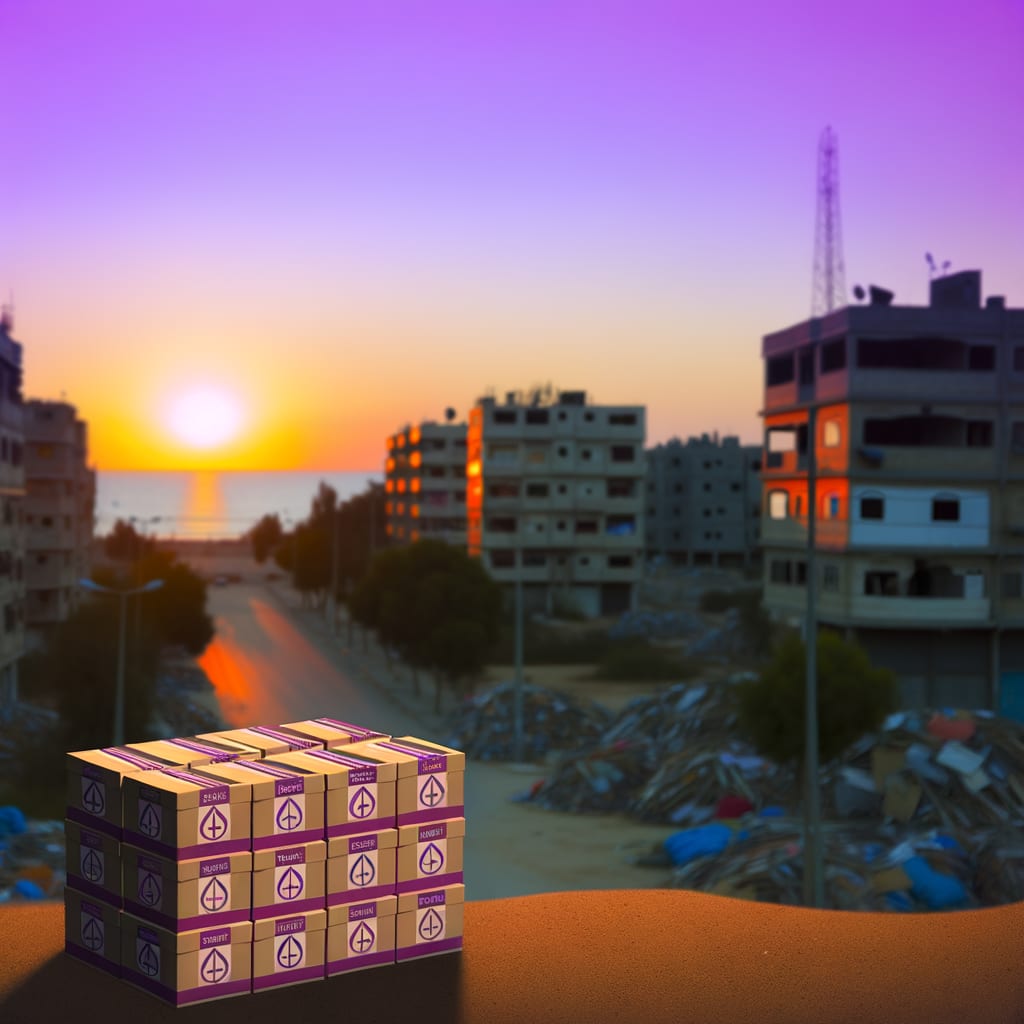Famine Declared in Gaza Amid Ongoing Conflict, Sparks Global Controversy
Gaza's ongoing conflict has reached a critical point with the Integrated Food Security Phase Classification (IPC) declaring a Level 5 - catastrophic
famine in the area1. This unprecedented announcement, indicating extreme food deprivation, acute malnutrition, and starvation-related deaths1, has ignited a global controversy with contrasting narratives emerging.
A Dire Situation
The IPC's finding suggests that a quarter of Palestinians in Gaza are starving1. The United Nations declared a famine in Gaza last Friday, blaming the systematic obstruction
of aid by Israel during its nearly two-year war with the Palestinian militant group Hamas2. The World Food Programme warned that the aid Israel is allowing to enter Gaza remains a drop in the ocean
, insufficient for assisting the 2.1 million people in need2.
Haunting scenes from the ground confirm the severity of the situation: Al Jazeera's Ibrahim al-Khalili reported from inside the empty main UNRWA warehouse in Gaza City3, while a Palestinian girl was seen struggling to survive amid the famine4.
Contrasting Narratives: Israel's Counterclaim
However, in a counter-narrative, Israel has challenged the reports of famine. The Israeli government organized a tour for 10 influencers to reinforce its version of the hunger situation in Gaza56. Videos showing these social media influencers touring GHF aid sites in Gaza were released7. The government suggested that there is food in Gaza, blaming the UN and Hamas for not distributing aid56.
Israel's Prime Minister Benjamin Netanyahu’s office called the IPC's report an outright lie,
while Foreign Ministry Spokesperson Oren Marmorstein claimed the report was tailor-made
based on Hamas lies[^16^].
Historian Danny Orbach also argued that claims of widespread hunger in the Palestinian territory are incorrect and exaggerated8.
Global Reactions and Warnings
The alleged use of food as a weapon in the ongoing conflict has stirred international consciences9. The UNRWA Commissioner-General Philippe Lazzarini described Gaza’s famine as the “last calamity” hitting the besieged territory10. He urged the Israeli government to allow aid organizations access to the enclave and called for an immediate ceasefire10.
The World Food Programme head slammed the situation in Gaza as ‘catastrophic’11, with the UN agency calling the famine 'man-made'12. Actor Mark Ruffalo and others have called on world leaders, including US President Donald Trump, to act13.
Conclusion
As the world grapples with the announcement of a famine in Gaza, the situation on the ground remains critical. The intense debate around the cause of the famine underscores the complexities of the conflict. With aid organizations warning of a worsening humanitarian crisis, the urgent need for a ceasefire and a resolution to the conflict becomes even more apparent.

